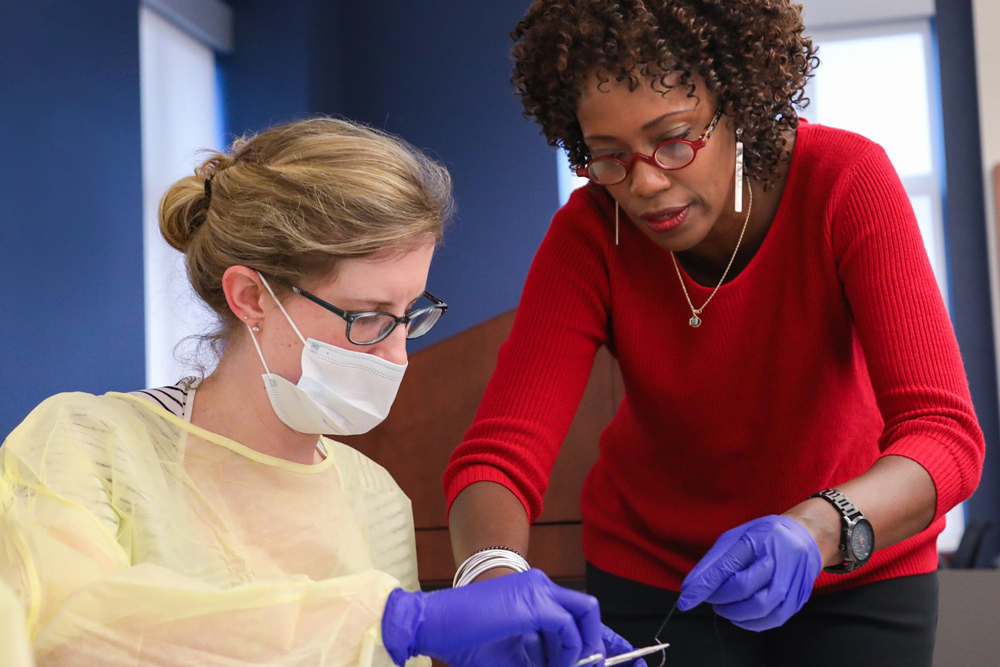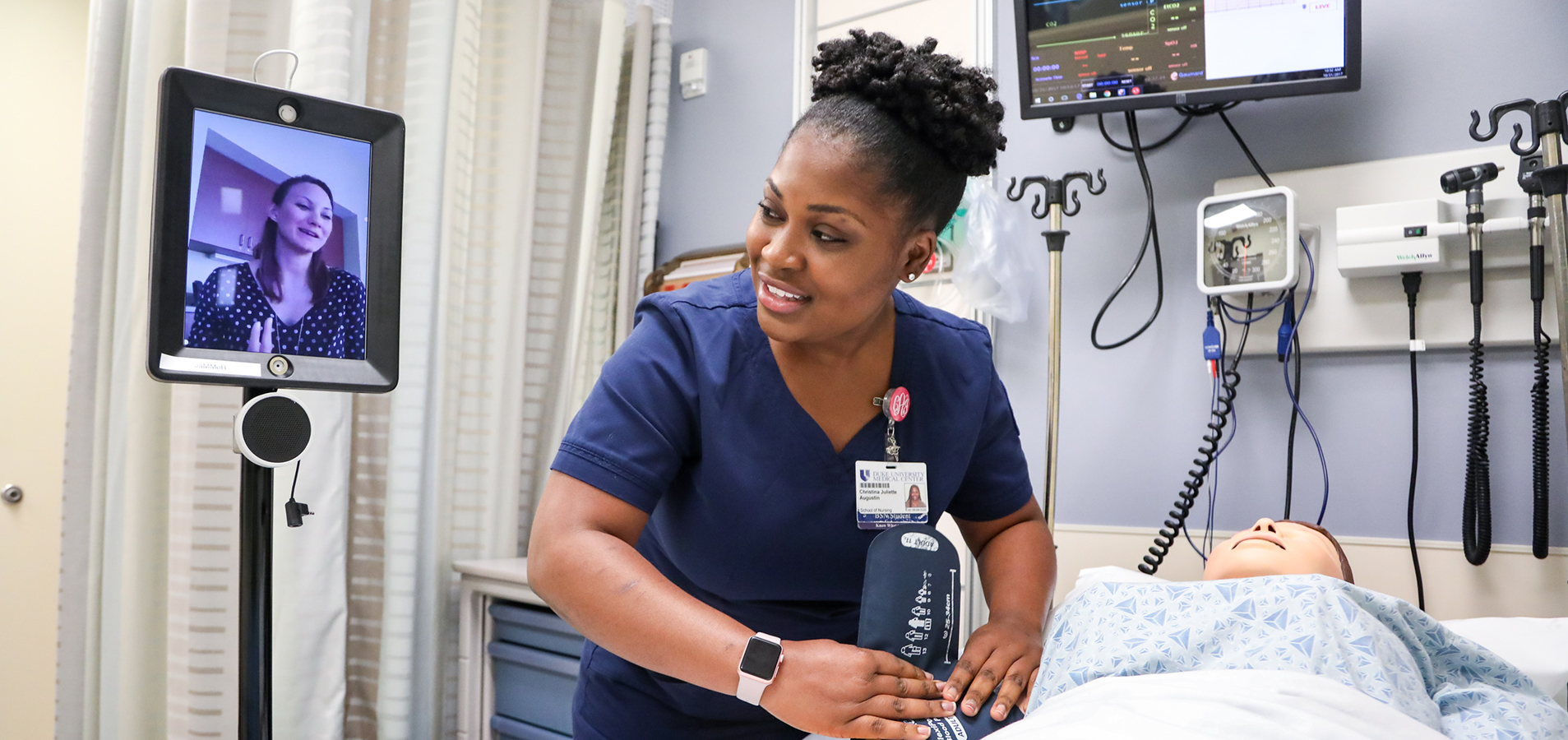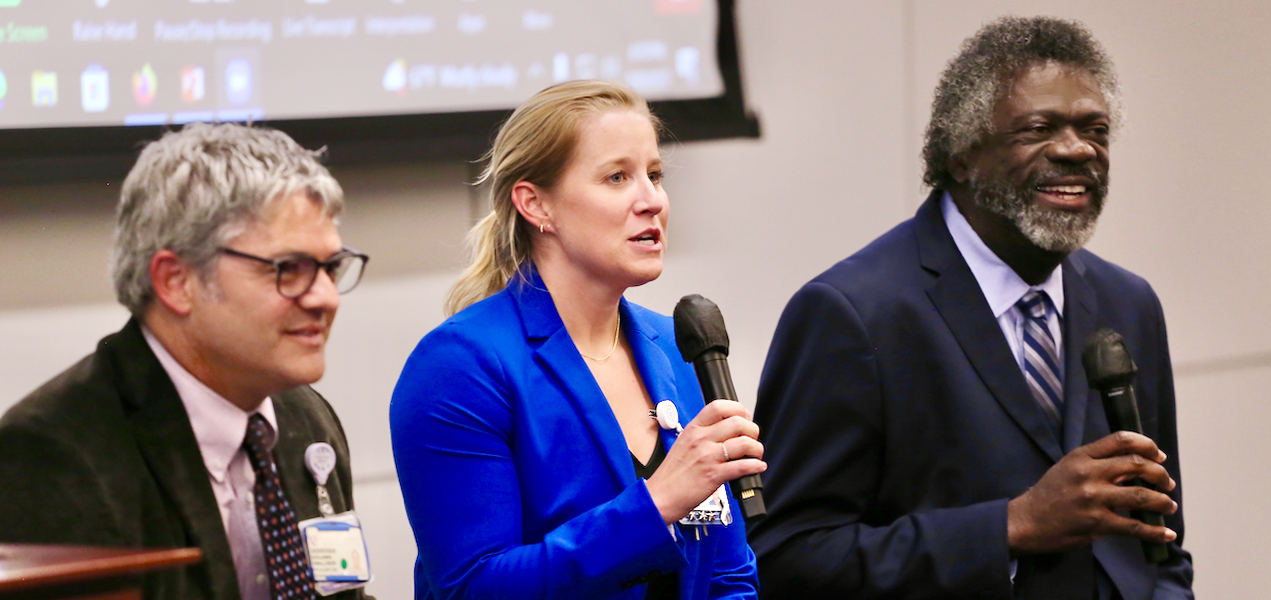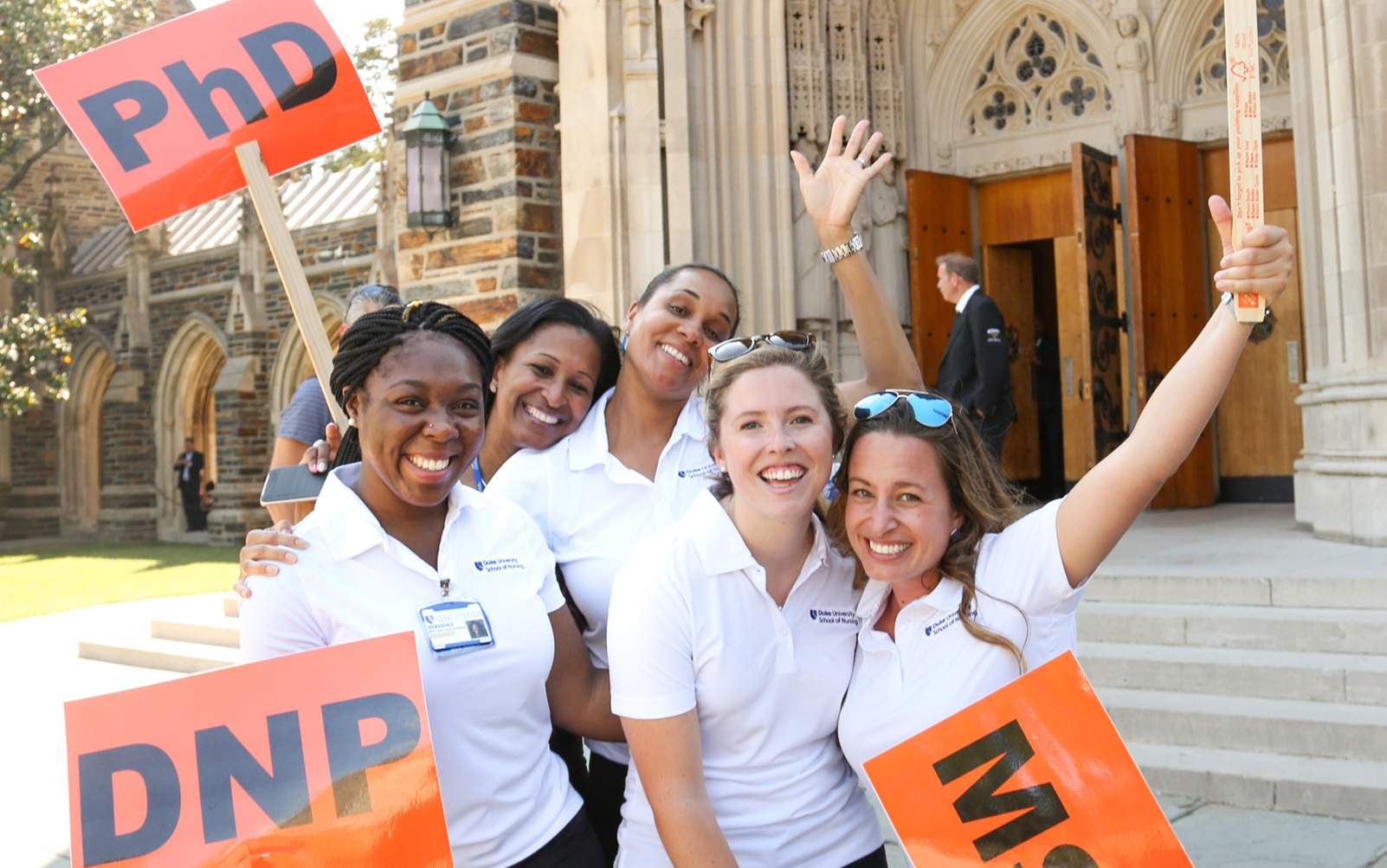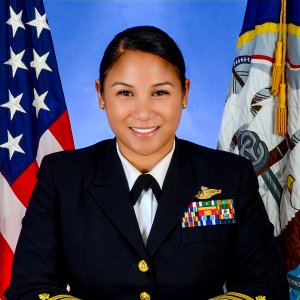Shape the future of nursing with Duke’s top-ranked MSN in Nursing Education program.
Duke University School of Nursing’s MSN in Nursing Education empowers you to become a leader and educator in the ever-evolving field of nursing. Our nursing education program provides a strong foundation in nursing science and evidence-based practices, while seamlessly integrating advanced studies in educational technology, curriculum design and teaching strategies.
Ranked the #1 Best Online Nursing Education Program by U.S. News & World Report, our master’s in nursing education program combines in-depth nursing knowledge with cutting-edge educational methods. You’ll explore innovative teaching techniques that leverage technology to enhance learning outcomes and curriculum effectiveness, preparing you for a wide range of impactful career opportunities.
With our nursing education degree, you’ll master sought-after skills in clinical teaching, patient education and staff and professional development. This expertise prepares you to make a lasting impact in both health care and academic settings, shaping future generations of nurses and elevating standards of patient care.
Our Nursing Education program is currently not accepting applications.
Nursing Education Post-Graduate Certificate
For students who already have a master’s from an ACEN- or CCNE-accredited nursing school or in another approved discipline, we also offer a Nursing Education Post-Graduate Certificate. This program allows you to build on your expertise with specialized skills and knowledge, advancing your career potential.
MSN in Nursing Education Highlights
Duke University’s master’s in nursing education program blends online learning with practical applications to prepare you for advanced roles in both academic and health care settings. Through flexible online courses led by expert faculty, you’ll develop the essential skills to influence patient care and educate the next generation of nurses effectively:
Expert-led curriculum:
At Duke, you’ll benefit from an exceptional nursing education curriculum taught by nationally and internationally recognized faculty. This comprehensive education prepares you to become an influential member of the nursing faculty and exposes you to leading health care institutions.
Flexibility for working professionals:
Our master’s degree in nursing education is designed for working professionals, offering interactive online learning to fit your busy lifestyle. Complete your practicum close to home with our extensive network. Additionally, most core courses are 1 or 2 credits — as opposed to the traditional 3 credits — providing added flexibility.
Real-world experience:
In your final semester, you’ll engage in a hands-on synthesis course, working alongside experienced educators in either academic or staff development settings. You’ll plan, teach and evaluate sessions, effectively using technology to enhance learning outcomes. This personalized practicum is tailored to align with your career goals, providing valuable experience in your chosen setting.
What Can You Do With a Master’s in Nursing Education?
Duke’s master’s degree in nursing education opens doors to in-demand career opportunities at the forefront of nursing education and leadership. Our graduates are highly sought after for their expertise in areas such as clinical training, patient education, and staff and professional development.
With the robust training and knowledge our nursing education degree provides, you’ll be well equipped to make significant impacts in diverse roles, including:
- Academic positions: Become a faculty member, clinical instructor or program director at nursing schools and universities. You’ll have the opportunity to shape curriculum and enhance teaching methodologies, directly impacting the next generation of nurses.
- Health care leadership: Our master’s degree in nursing education prepares you to step into leadership roles, such as chief learning officer or education manager at hospitals and other health care facilities, influencing policies and practices on a broad scale.
- Corporate and nonprofit leadership: Lead training programs and develop educational content for health care corporations, nonprofit organizations and professional associations.
- Consultancy and advisory roles: Leverage your nursing education degree to advise educational institutions and health care organizations on strategies or curriculum development.
- Research and development: Engage in research that advances the field of nursing education, contributing to academic journals and spearheading innovative studies.
Educators are essential to the future of patient-centered nursing care, as evidenced by faster-than-average job growth in the education field. The U.S. Bureau of Labor Statistics (BLS) projects job opportunities for postsecondary teachers to grow up to 8% by 2032.
While exact figures vary depending on location, experience, area of expertise and other factors, the BLS reports median annual salaries of $80,780 for postsecondary nursing instructors and $105,650 for instructors in health specialty areas.
Program Director
Jennie De Gagne
PhD, DNP, RN, NPD-BC, CNE, ANEF, FAAN
Jennie De Gagne, Ph.D., DNP, RN, NPD-BC, CNE, ANEF, FAAN, serves as a clinical professor and director of Duke’s Nursing Education MSN and certificate programs. Her scholarship aims to advance the science of teaching and learning by effectively utilizing instructional technologies to create a student-centered environment that facilitates deeper and more constructive learning. Cybercivility, a critical topic in her research, has motivated her to develop and lead innovative projects that address incivility in cyberspace among health professionals and students.
Learn more about Jennie De Gagne: Scholars@Duke




